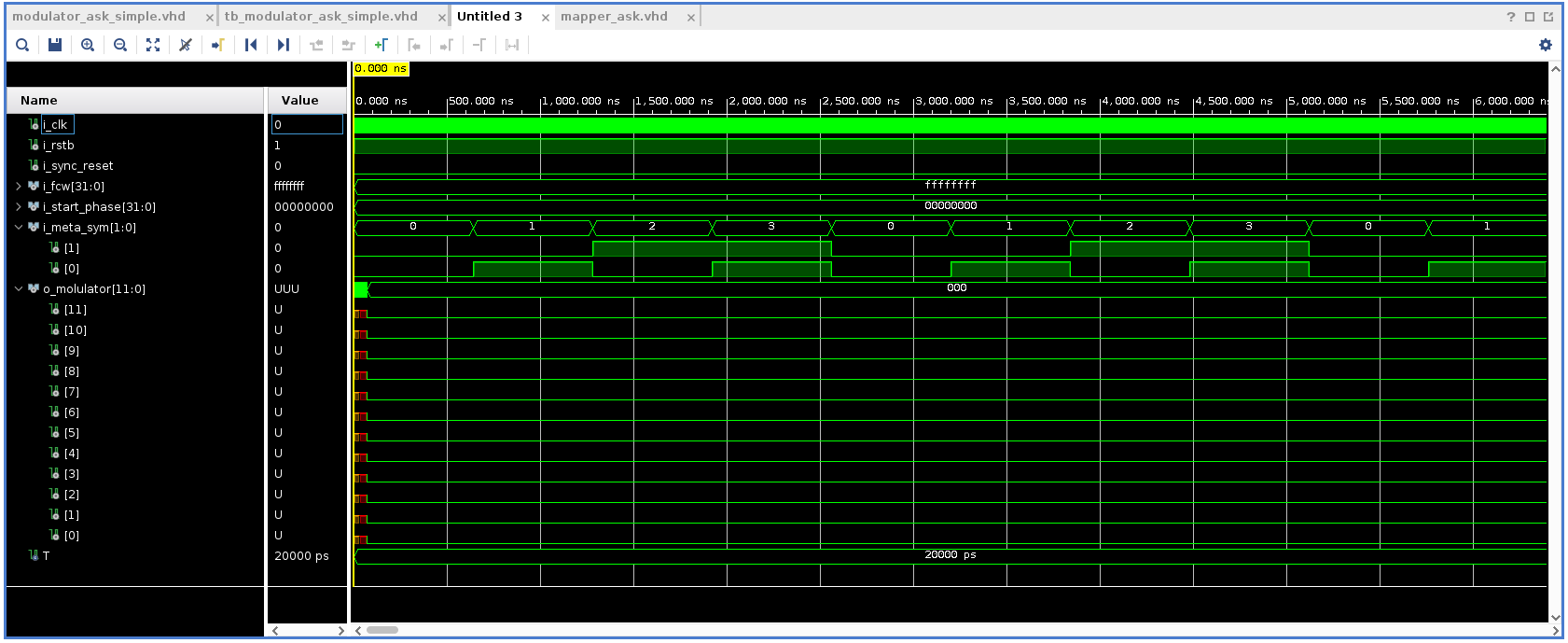I've been trying to learn VHDL recently and came across the following tutorial for an ASK modulator: https://surf-vhdl.com/implement-digital-ask-modulator-vhdl/
I tried writing a testbench for this modulator so that I can see it generate a modulated output but I am not getting anything from the output port of the dut. Here are my assumptions:
i_meta_symrepresents the 4 possible messages I can use from:00,01,10and11- I can run two processes concurrently, one to generate clock signal, and another to change
i_meta_sym - I have used 32 clock cycles for changing between the message symbols (640ns)
Here is the result of my simulation for reference.
and my testbench code:
library IEEE;
use IEEE.STD_LOGIC_1164.ALL;
entity tb_modulator_ask_simple is
-- Port ( );
end tb_modulator_ask_simple;
architecture arch of tb_modulator_ask_simple is
constant T : time := 20 ns;
signal i_clk : std_logic; -- input
signal i_rstb : std_logic; -- input
signal i_sync_reset : std_logic; -- input
signal i_fcw : std_logic_vector(31 downto 0); -- input
signal i_start_phase : std_logic_vector(31 downto 0); -- input
signal i_meta_sym : std_logic_vector(1 downto 0); -- input
signal o_molulator : std_logic_vector(11 downto 0); -- output
begin
dut: entity work.modulator_ask_simple port map (
i_clk => i_clk,
i_rstb => i_rstb,
i_sync_reset => i_sync_reset,
i_fcw => i_fcw,
i_start_phase => i_start_phase,
i_meta_sym => i_meta_sym,
o_molulator => o_molulator
);
i_rstb <= '1';
i_sync_reset <= '0';
i_start_phase <= (others => '0');
i_fcw <= (others => '1');
-- continuous clock
process
begin
i_clk <= '0';
wait for T/2;
i_clk <= '1';
wait for T/2;
end process;
process
begin
i_meta_sym <= "00";
wait for 640ns;
i_meta_sym <= "01";
wait for 640ns;
i_meta_sym <= "10";
wait for 640ns;
i_meta_sym <= "11";
wait for 640ns;
end process;
end arch;
Additionally, I couldn't work out how to connect the carrier wave from the dds_sine source so that I can also see what it (carrier) looks like during simulation.

